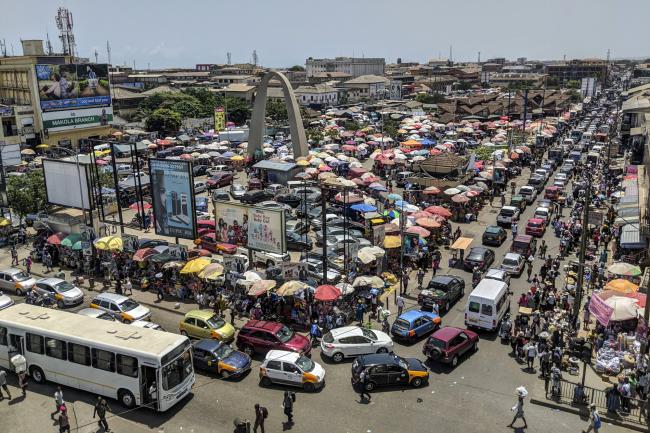(Bloomberg) -- Central banks around Africa -- poised to reveal their first response to the emerging-market turmoil of the past month -- are likely to usher in an end to the continent’s easing cycle.
There’s a week to go before the U.S. Federal Reserve delivers what could be its third interest-rate increase of the year. Currency weakness from the wider market sell-off preceding that move and a pickup in inflation may persuade officials to freeze borrowing costs -- and in some cases even start to talk about tightening.
Central bankers in Nigeria, Ghana and Kenya are likely to keep key rates unchanged at their meetings next week. This Thursday, South African officials are seen by some economists as open to a potential hike. Russia raised its key rate by 25 basis points, while Turkish regulators increased the rate by 625 basis points.
“We are slowly seeing the effects of recent emerging-market events in the rest of Africa,” Celeste Fauconnier, an analyst at FirstRand Ltd.’s Johannesburg-based Rand Merchant Bank unit, said. “It’s safe to say the cutting trend in most of Africa is over. We’re unlikely to see a reaction like that of Turkey and Russia, but the chances of further rate cuts are very slim.”
Here’s a round-up of what the continent’s central bankers are dealing with.
South Africa
South Africa’s rand has lost 11 percent against the dollar since the start of August, pushing inflation expectations to a three-month high. The Reserve Bank has to balance its goal of anchoring price growth close to 4.5 percent with the needs of an economy that fell into a recession in the second quarter.
Ghana
Tax measures announced in July add to price pressure in Ghana that was caused by the cedi’s weakness. While inflation remains inside the central bank’s target band, it has picked up from the low it reached in April.
The currency’s drop has big consequences for inflation and it’s “not certain how long this will persist and how the cedi will end the year,” said Courage Boti, an Accra-based economist at Databank Group. “The Bank of Ghana will want to observe these trends properly” before moving on rates, he said.
Kenya
While Kenya’s Monetary Policy Committee has said there is room for a more accommodative stance, price pressures due to the introduction of a tax on fuel and the decision by lawmakers to not repeal a law capping commercial borrowing costs may temper this.
The central bank “is unlikely to move again in the short term given the risk of an uptick in inflation,” said John Ashbourne, a London-based economist at Capital Economics Ltd.
Nigeria
Nigeria’s inflation rate rose for the first time in 19 months in August and pre-election spending combined with a record budget could exacerbate price pressures. Deputy Governor Joseph Nnanna said last month the central bank is “in the mood” for tightening and will increase its main interest rate if inflation doesn’t slow.
Gross reserves are near a six-month low and could come under further pressure due to capital outflows, Feyisike Ilemore, an analyst at ARM Research, said by phone. Three of ten MPC members voted for tighter policy in July.
“These members alongside others may well move forcefully for a rate hike in a bid to rein in inflation,” she said.
